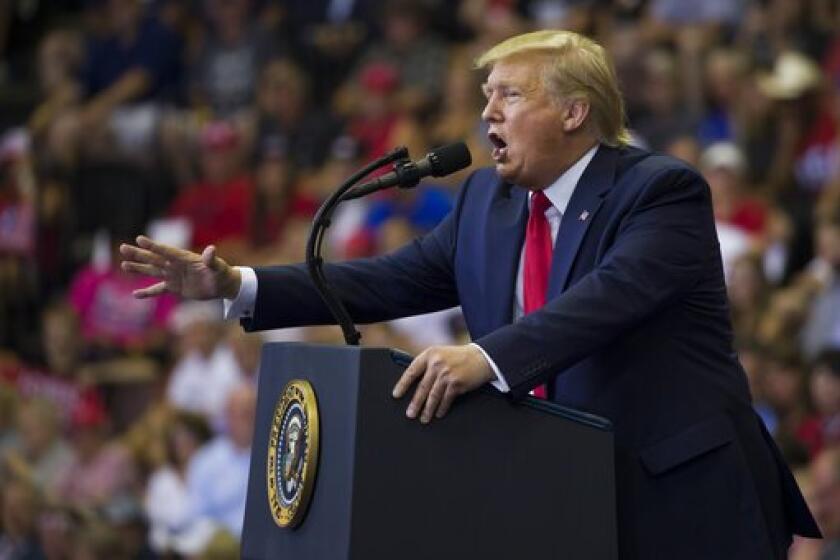Time to Rethink This Media Theory?
- Share via
It is clear that the unprecedented tragedy of Sept. 11 will affect not only U.S. foreign policy but domestic policy as well. One example of this is the debate over whether the terrorist attacks undercut the supposed benefits of the “Star Wars” missile defense system that President Bush has advocated. Fans and foes have been having their say in newspapers and on talk radio.
As of yet, however, there has been precious little discussion of a theory that is a favorite of politicians on the left and right: the claim that TV and movie violence causes, or contributes to, real violence.
In the wake of every violent tragedy in the United States during the last 10 years, the media have been cluttered with talking heads ready to put the blame squarely on Hollywood’s shoulders. In the aftermath of every school shooting, every rampage by a disgruntled office worker, every well-publicized case of matricide, patricide and infanticide, we’ve been treated to a parade of politicians and “experts” telling us that these horrible tragedies occurred because of the debasing effects of our popular culture.
So where are these politicians and “experts” now? Where are they now that an act of unprecedented violence and evil has been committed by people who hail from a culture in which movies, TV and pop music are banned? Isn’t the Afghanistan of today the model country for the “blame the media” crowd?
The Taliban has gone beyond mere warning labels and V-chips. It’s attacked the problem in much more concrete ways, creating a society free of buddy cop shows, slasher films, MTV’s “Jackass” and “Beavis & Butt-head.”
In short, Afghani culture lacks the things that the “experts” tell us are responsible for societal violence. And what’s the result? You have a country that serves as a gathering place for the world’s most violent terrorists, and where, as shown on a recent “Dateline” episode, the murder and rape of women is routine, and political dissidents and non-Muslims are oppressed, attacked and sometimes killed.
So what’s the deal? Where are the anti-violence talking heads to explain to us why the banning of violent media from Afghani culture didn’t lead to a peaceful utopia? After all, haven’t these folks been promising us for years that if we just got rid of violent media, we wouldn’t be plagued with high crime rates?
Haven’t we been told time and again that societal violence is the inevitable result of messages we absorb from TV, movies and music?
For better or worse, human beings are much more complex than the anti-Hollywood ideologues assume. Our actions are shaped by so many divergent factors that even if we removed the TVs from every house in the United States, I doubt we’d see any major fluctuation in crime statistics. Violent criminals don’t need the media to give them ideas. A sick and twisted mind can think up the vilest acts of evil, even if there’s not a TV set or movie theater in sight.
*
David Morgenthal, a freelance writer living in West Hollywood, is working on a book of horror short stories. He lived for 10 years in Germany, where he edited the bimonthly horror fiction magazine Schrecken.
More to Read
Get the L.A. Times Politics newsletter
Deeply reported insights into legislation, politics and policy from Sacramento, Washington and beyond. In your inbox twice per week.
You may occasionally receive promotional content from the Los Angeles Times.










